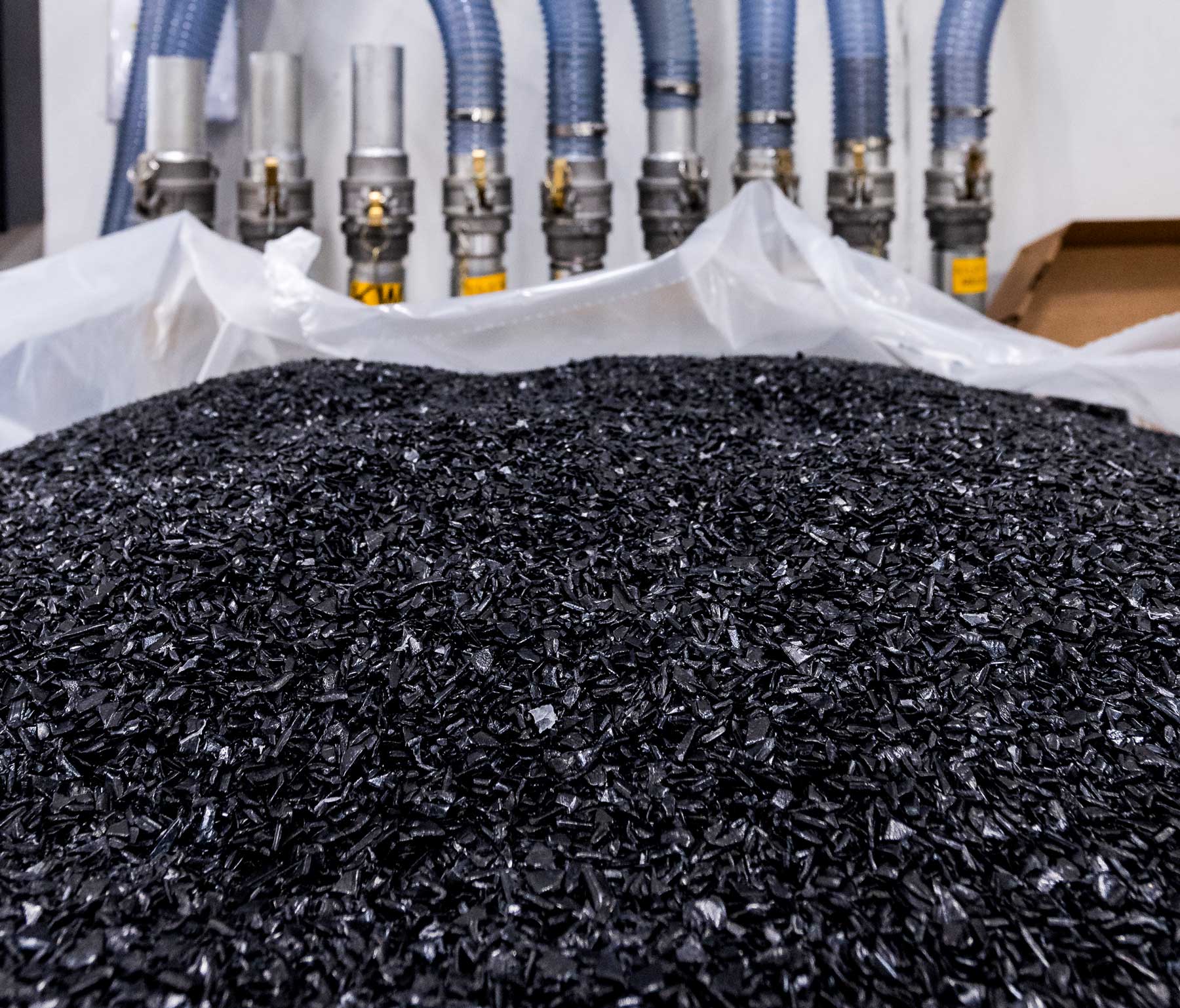Choosing Sustainable, Reusable Plastic Shipping Pallets
When you read or watch the news, you’ll frequently see stories about plastics. Overwhelmingly, this coverage is negative. For this reason, while CEOs and logistics managers may be impressed by the benefits plastic pallets offer their warehouses, distribution centers, and transportation operations, they may hesitate to switch to plastic shipping platforms because of concerns about their environmental impact. What matters most about plastics, though, is how they’re used–and reused.
The plastics that are causing so much concern today are overwhelmingly single-use plastic items that are never recycled and never properly disposed of. That doesn’t have to be the case with all plastics. The iGPS plastic pallet is a durable, reusable plastic shipping platform that can be used dozens of times, then reground into a “new” recycled plastic pallet at the end of its initial usable life. This reduces plastic landfill waste and keeps plastic pallets out of the environment. Reusable, recyclable plastic pallets have several advantages that make them more sustainable and friendlier to the environment than their wood counterparts.
The Advantages of Recycled Plastic Pallets
Plastic is a wonder material: strong, lightweight, impervious to rot, and able to be molded into any shape. Comparing something as simple as a child’s lunchbox from the 1950s to a more modern version reveals how amazing plastics are. An older lunchbox made of stamped steel is likely to be flecked by bacteria-trapping rust, difficult to clean, and surprisingly heavy. A newer plastic lunchbox, in comparison, will be light and easy to wipe down even if it’s a vintage example from 30 years ago.
That same comparison also reveals the concerns surrounding plastics. They are a material that doesn’t break down in any way except chemically, and that takes a long time. Yet, for decades we’ve used these enduring materials for single-use items like food wrappers and drinking straws. It isn’t plastics that are the problem–it’s the way that we use them. Plastics are well-suited to roles in which they are:
Reused
Plastic is uniquely suited for reuse. Microbes that can break down plastics are few and far between, and plastic is impervious to atmospheric oxygen. This means that plastic is free from rot and corrosion and maintains its strength for a long time. As a result, plastic works best when used in a long-term role.
Kept in Controlled Channels
The reason that plastic so often makes its way into the natural environment is that it is frequently used in scenarios where there is no means of appropriate disposal. Plastic containers are used even in municipalities without recycling programs, for instance. In controlled industrial or logistics uses, however, plastic rarely leaves the custody of entities with a vested interest in seeing it reused or properly disposed of.
Recycled
An item made of high-quality plastic is not just reusable but also recyclable. It can be ground up, melted, and reformed into a new version of the item. When plastics stay in controlled channels where they are recycled as opposed to being thrown away, plastic’s functional life is extremely long.
iGPS pooled plastic pallets meet all of these criteria. Pooled pallets usually remain within the pool, and if the pallets are shipped to unapproved retailers, a special trip can be arranged to collect them when the pooling service is advised of the pallets’ location. An iGPS pallet can make 100+ trips through the supply chain in its lifetime, and when a pallet breaks, it can often be repaired. If it becomes unfit for use, the pallet is reground and made into a “new” recycled plastic pallet. An iGPS plastic pallet demonstrates true cradle-to-cradle sustainability; it can always be used again in some way. This makes the iGPS plastic pallet more sustainable than a wood block or white wood pallet, which requires the cutting and milling of new lumber for manufacture and repair.
Reusable Plastic Shipping Pallets Are Sustainable
The biggest threat to our environment is climate change due to industrial and vehicle emissions. Yet while we deal with this threat, we still face the need to keep people fed and clothed and to participate in the economy. Improving warehouse and transportation efficiency is a real step in the right direction toward a healthier planet, and the iGPS plastic pallet plays a significant role in this regard.

Around 50 pounds, the iGPS pallet is substantially lighter than a wood block pallet and therefore reduces the weight of a full truckload. That means more sellable products by weight per load, and a significant reduction in fuel burned and greenhouse gases released by your supply chain transportation. See for yourself how the iGPS plastic pallet can help make your supply chain more sustainable with our greenhouse gas calculator.
iGPS’ reusable plastic pallet also improves efficiency through unique features like chamfered edges and rounded fork notches that help prevent damage to your forklift, the pallet, or your products. The strength and careful engineering of the iGPS pallet reduce accidents, interruptions, and damage in the supply chain, minimizing waste and making your operation more efficient, sustainable, and successful.
iGPS Logistics
Is the market leader in plastic pallet pooling.
Provides a pallet that is ideally suited to the tight tolerances of your automated systems
Are compliant with Consumer Brand Association (CBA) specs
Are sanitary enough for bagged lettuce but strong enough for bagged concrete.
The iGPS rental pallet is the sustainable, reusable shipping platform of the future, and is available across North America to help companies get the greatest efficiency at every warehouse, distribution center, and transportation leg of the supply chain.
